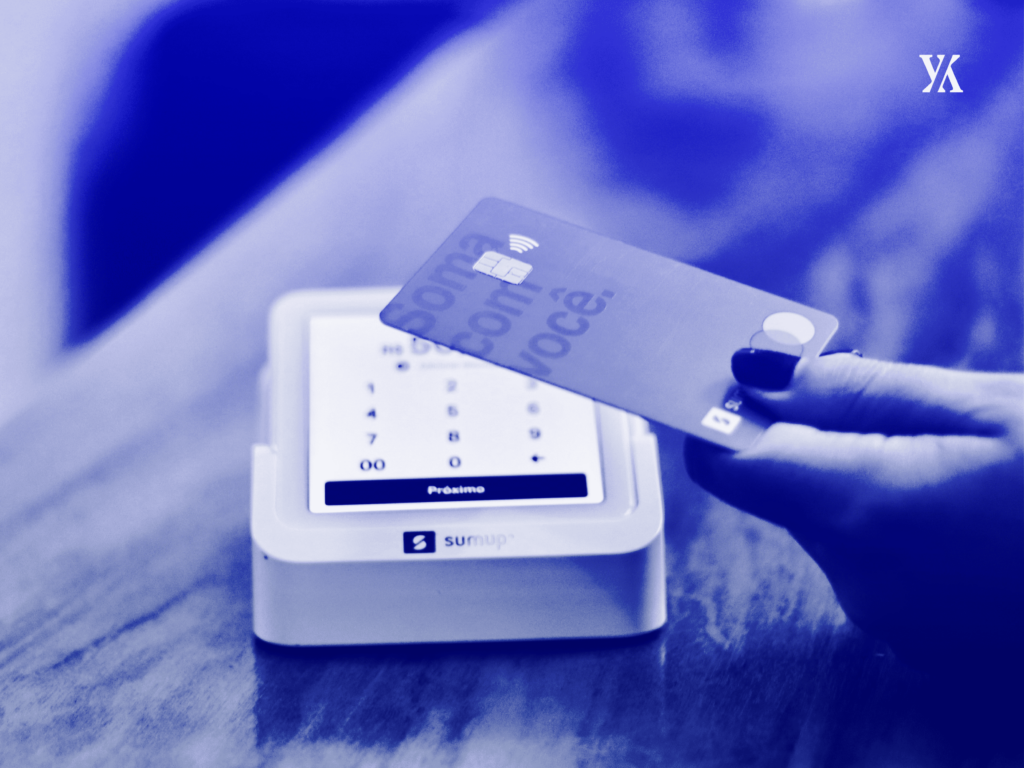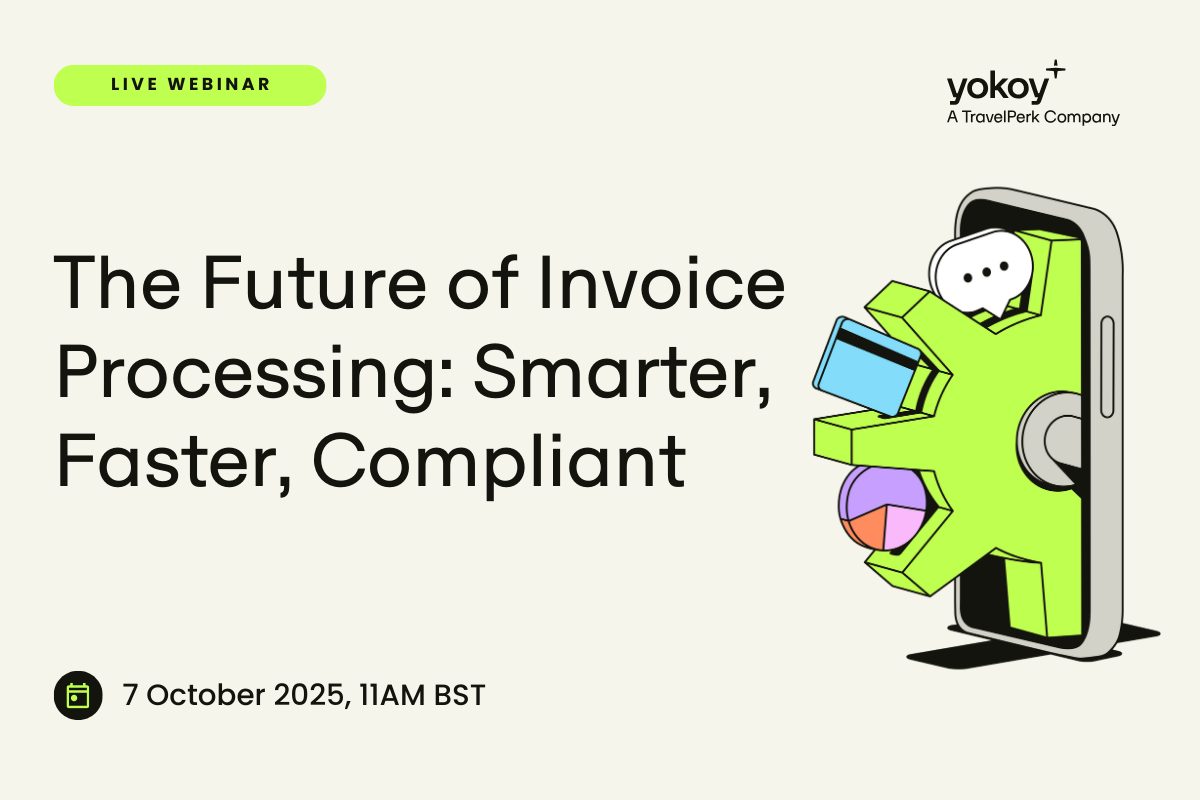Home / Mobile Payments: Leading the Future of Finance Operations
Mobile Payments: Leading the Future of Finance Operations
- Last updated:
- Blog

Thanks to innovative financial technology, the rapid rise of mobile payments transforms finance operations across industries. This offers new opportunities for businesses to streamline financial transactions, enhance security within their ecosystem and even create a seamless customer experience. With smartphones, digital wallets, smart corporate cards and contactless payment technologies, mobile payments are not just a trend — they shape the future of financial services.
Over 4.88 billion smartphone users globally are part of the reason for the rise of mobile payments. The infrastructure for mobile payments has expanded rapidly with the intensified use of mobile devices. Mobile payment platforms such as Apple Pay, Google Pay and Samsung Pay have profited from this trend, offering consumers a seamless user experience for complete transactions that is convenient and secure. The surge in contactless payments and the increasing use of NFC (Near Field Communication) and QR codes has further accelerated the adoption of mobile payments.
How can modern business payment solutions empower your business to focus on consumer payment experiences, operational benefits of digital payments, efficiency, control and security? Let’s explore how mobile payments can upgrade your business’ finance operations!
Importance of consumer payment experiences for business transactions
Customers today expect payments to be quick, easy, and secure, and this expectation extends to how businesses handle their financial transactions as well. The rapid adoption of mobile payment options like Apple Pay, Google Pay, and Samsung Pay has helped companies keep up with these changing demands, offering seamless ways to pay. Services such as PayPal and Buy Now, Pay Later (BNPL) have further boosted flexibility, allowing consumers to manage payments on their terms, which has influenced how businesses operate across different industries.
Mobile wallets or payment apps have reshaped customer expectations and employee expense management. With features such as digital receipts and automated expense tracking, business expense management is simplified enormously. This speeds up reimbursement procedures, leading to increased satisfaction and productivity.
These factors make real-time payments, instant access and transaction control critical for every company to be competitive in today’s fast-paced market environment.
Blog article
Why Smart Corporate Cards Are a Must for Businesses
Payment methods have been undergoing a massive modernization phase, and the traditional corporate credit card is no exception. But the real question is, are these cards truly smart or just another gimmick?

Francesca Burkhardt,
Product Marketing
Benefits of mobile payments for finance operations
As businesses increasingly adopt digital transformation strategies, mobile payments have emerged as a key tool in enhancing financial operations. Beyond offering convenience and speed, mobile payment solutions provide companies with tangible benefits such as real-time tracking, automated reconciliation and enhanced security measures. But let’s take a closer look:
Increased convenience: Mobile payments allow employees and customers to make payments anytime, anywhere — even in digital currencies. This flexibility reduces the need for physical corporate cards, cash, and traditional banking and is particularly useful in fast-paced backdrops such as retail or service industries. Payment apps also streamline business expense management, giving customers and employees more freedom to handle financial transactions from their smartphones.
Faster transactions: The speed of mobile payments is unmatched by traditional methods, as payments can be made instantly and ensure that transactions are processed in real-time. This improves cash flow and reduces the time businesses take to receive funds. This particularly benefits organisations that rely on daily transactions, such as retailers or service providers.
Cost savings: Businesses can reduce operational costs by eliminating the need for physical infrastructure like point-of-sale (POS) systems. Mobile payments also reduce administrative expenses associated with cash handling and manual transaction processing, resulting in significant cost savings for finance departments.
How mobile payments drive efficiency, control and security
Fintech, like mobile payments, significantly improves the efficiency of finance operations by automating processes that would otherwise require manual input that can be error-prone.
Real-time tracking: Mobile payment platforms enable businesses to track financial transactions immediately, providing instant visibility into cash flow and payment status. This feature can significantly enhance financial reporting and decision-making, as it allows businesses to adjust strategies based on up-to-date information.
Automated reconciliation: By integrating directly with accounting software’s API, mobile payment systems can automate the reconciliation of payments and expenses. This eliminates human error and reduces the time it takes to close the books, making finance teams more efficient.
Customisable controls: Businesses can tailor mobile payment platforms to their needs by setting spending limits, creating approval workflows and monitoring employee expenses in real time. This is especially useful with virtual corporate cards to help ensure compliance with company policies and provide greater oversight of a company’s financial operations.
Security concerns are typical when adopting new solutions, but mobile payments are designed with robust security measures that make them more secure than traditional payment methods.
Encryption and tokenisation: These new technologies protect sensitive payment information by encrypting it and replacing it with secure tokens. This ensures that no actual payment data is transmitted during transactions, reducing the risk of data breaches.
Fraud prevention: The mobile payment landscape often includes advanced fraud detection systems that use artificial intelligence (AI) to monitor transactions and flag suspicious activities as they happen. Additionally, smart corporate cards can be issued for single use only. This proactive approach helps businesses stay ahead of potential threats.
User authentication: Biometric authentication methods, such as facial recognition and fingerprint scanning, add an extra layer of security. These methods ensure that only authorised users can access the system, preventing unauthorised transactions.
Blog article
Simplifying Expense Management: How Corporate Cards Benefit Businesses of All Sizes
Although most corporate card programs offer cash back on transactions, these savings aren’t the main driver for companies who choose to equip their employees with business credit cards or debit cards.

Francesca Burkhardt,
Product Marketing
Efficient, secure and scalable: Mobile payments with Yokoy Pay
Yokoy Pay symbolises the future of mobile payments, offering your business the perfect framework to implement an efficient, secure and highly scalable platform. Built with AI-driven automation, Yokoy Pay allows you to streamline your company’s finance operations by providing real-time transaction tracking, global compatibility and enhanced security.
But let’s dive into some of the reasons your company should consider adopting Yokoy Pay for mobile payments:
Real-time tracking and control
Yokoy Pay enables your finance team to monitor every financial transaction in real-time, offering unparalleled control over financial operations. Moreover, with Yokoy’s platform, businesses can integrate their travel and expense processes into one smart solution, automating the payment and reconciliation for business travel expenses. This visibility improves financial analysis and decision-making. With a better overview, your finance experts are always on top of cash flow and can simplify financial reporting.
Global compatibility
Europe is not the only market for many businesses. That’s why Yokoy Pay supports multiple (digital) currencies and payment systems, making it the ideal solution for international businesses. With Yokoy Pay’s global compatibility, your company can easily handle cross-border transactions and help to ensure compliance with local regulations.
Enhanced security
Yokoy Pay uses the latest security technologies to protect your company from fraud and unauthorised transactions. AI-assisted fraud detection and additional features help ensure that payments are processed securely, providing peace of mind for your finance team and customers alike.
Fast payment processing
By automating payment processes, Yokoy Pay reduces the time and effort needed to manage transactions. With real-time payment capabilities, Yokoy Pay reduces delays in processing financial transactions, allowing your business to maintain smooth cash flow and improve operational efficiency, helping you to maintain strong relationships with suppliers and clients.
AI-driven automation
Yokoy Pay uses AI to automate various aspects of financial management, from real-time expense reporting to reconciliation. AI-powered automation takes over the categorisation of transactions or predefined approval workflows, flags suspicious transactions and much more. This reduces manual work for your company, minimises errors, speeds up transaction processing, and improves overall efficiency.
Future trends in mobile payments
Looking ahead, several trends are poised to shape the future of mobile payments, and companies should be already up-to-date on these trends to be a step ahead in the future:
Integration with IoT: The Internet of Things (IoT) and open banking solutions will further connect devices and enable payments through innovative wearables and new smart appliances, making transactions feel even more seamless. This way, carrying physical credit cards like Visa or Mastercard could become completely unnecessary.
Blockchain technology and cryptocurrencies: The use of blockchain technology in mobile payments is expected to grow, offering faster, more secure cross-border transactions. Additionally, the acceptance of digital currencies like cryptocurrencies as a form of payment is likely to increase, enabling businesses to tap into new digital markets.
AR and VR integration: Augmented reality (AR) and virtual reality (VR) as technological advancements will revolutionise the payment experience, particularly in e-commerce. Customers can interact with virtual products and go to the checkout within immersive environments.
Next steps
It is safe to say that mobile payments are here to stay. They are currently shaping the future of finance operations. As businesses further embrace digital transformation, mobile payment platforms are becoming essential tools for streamlining operations, enhancing security, and improving the overall customer experience. With features like real-time tracking, AI-driven automation, and robust security measures, solutions like Yokoy Pay can offer your business a scalable and efficient way to manage payments in the digital age.
If you want your company’s financial processes to stay competitive and future-proof, how about exploring how mobile payments can streamline your finance operations?
In this article
See intelligent spend management in action
Book a demoRelated content
If you enjoyed this article, you might find the resources below useful.


